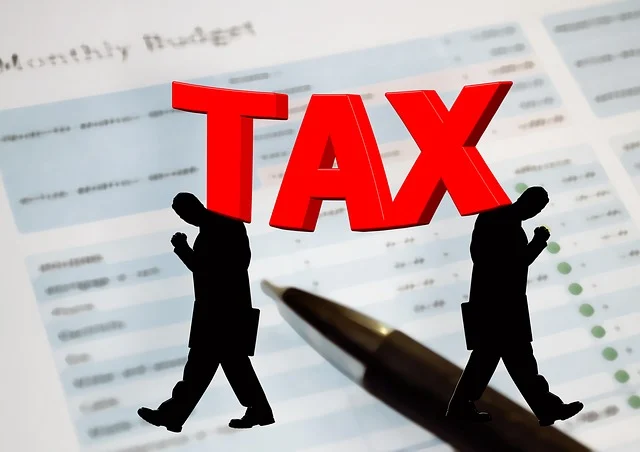Understanding Belgian Property Taxes

Belgium has a well-structured and transparent tax system, but property taxes can be complex due to the country’s decentralized governance. The three regions—Flanders, Wallonia, and Brussels-Capital—each have their own rules and rates for property-related taxes. Understanding these taxes is crucial whether you’re buying, renting, or owning property in Belgium. Below is a comprehensive guide to help you navigate Belgian property taxes.
1. Key Types of Property Taxes in Belgium
a. Registration Duties (Transfer Tax)
When purchasing property in Belgium, buyers must pay registration duties, also known as transfer taxes. These fees vary depending on the region and the type of property:
- Residential Properties:
- Flanders: 10% (reduced to 6% for first-time buyers under certain conditions).
- Wallonia: 12.5%.
- Brussels-Capital Region: 12.5%.
- Commercial Properties: Generally taxed at higher rates, often around 16–18%, depending on the region.
- Exemptions and Reductions: Some transactions, such as inheriting property or transferring ownership within families, may qualify for reduced rates or exemptions.
b. Annual Property Tax (Oncost/Précompte immobilier)
This is an annual municipal tax levied on property owners. It is calculated based on the property’s cadastral income (the estimated rental value determined by the government).
- How It Works:
- The cadastral income is multiplied by a coefficient set by the region (e.g., 1.6 for Flanders, 1.3 for Wallonia, and 1.25 for Brussels).
- The resulting amount is then taxed at a local rate decided by the municipality, typically ranging from 1% to 2%.
- Example: If your property’s cadastral income is €10,000 and the regional coefficient is 1.6, the taxable base becomes €16,000. If the municipal tax rate is 1.25%, you’ll pay €200 annually.
c. Wealth Tax (Patrimonial Tax)
Belgium does not impose a national wealth tax, but some municipalities levy additional charges on high-value properties. These are relatively rare and depend on local regulations.
d. Capital Gains Tax
If you sell a property at a profit, you may be subject to capital gains tax. However, this only applies if the property was not your primary residence.
- Exemptions: No capital gains tax is charged if:
- You’ve lived in the property for at least five years before selling.
- The property was inherited and sold within six months of inheritance.
- Tax Rate: For taxable profits, the rate ranges from 16.5% to 33%, depending on the gain and how long you’ve owned the property.
2. Regional Variations in Property Taxes
Belgium’s federal structure means that property taxes differ across regions. Here’s a breakdown:
a. Flanders
- Known for lower registration duties compared to other regions.
- Offers incentives for energy-efficient renovations, reducing property taxes for eco-friendly upgrades.
- Municipalities in Flanders tend to have slightly lower annual property tax rates.
b. Wallonia
- Higher registration duties (12.5%) compared to Flanders.
- Provides subsidies for renovations, particularly in rural areas.
- Annual property taxes are generally moderate, though they vary by municipality.
c. Brussels-Capital Region
- Registration duties match those in Wallonia (12.5%).
- Property values in Brussels are among the highest in Belgium, leading to higher annual property taxes despite similar municipal rates.
- Special provisions exist for expats working for international organizations, who may qualify for reduced property taxes.
3. Additional Costs to Consider
In addition to property taxes, there are other costs associated with buying or owning real estate in Belgium:
a. Notary Fees
Notaries handle legal aspects of property transactions and charge fixed fees based on the property price. These usually range from 1% to 2% of the purchase price.
b. Maintenance and Utilities
Property owners are responsible for ongoing maintenance, utility bills, and communal charges (if applicable). These costs vary widely depending on the property type and location.
c. Rental Income Tax
If you rent out your property, rental income is subject to personal income tax after deducting allowable expenses (e.g., repairs, insurance). The effective tax rate depends on your total taxable income.
4. Tips for Managing Property Taxes
To minimize your tax burden and ensure compliance, consider the following strategies:
a. Plan Your Purchase Timing
First-time buyers in Flanders can take advantage of reduced registration duties by meeting specific criteria. Ensure you understand eligibility requirements before finalizing a purchase.
b. Invest in Energy-Efficient Renovations
Many regions offer tax breaks or subsidies for improving energy efficiency, such as installing solar panels or upgrading insulation. These investments can reduce both property taxes and utility costs.
c. Consult Local Experts
Given the complexity of Belgian property taxes, consulting a local accountant or tax advisor is highly recommended. They can help you navigate regional differences, identify deductions, and optimize your financial planning.
d. Review Cadastral Income Regularly
Cadastral income values are periodically updated by the government. If you believe your property’s assessed value is inaccurate, you can request a reassessment through the relevant authorities.
5. Frequently Asked Questions (FAQs)
Q: Are property taxes deductible?
A: Yes, property taxes paid on your primary residence can often be deducted from your taxable income. However, this deduction is capped and varies by region.
Q: Do non-residents pay higher property taxes?
A: Non-residents are subject to the same property tax rules as residents. However, they may face additional administrative hurdles, such as proving residency status or obtaining clearance certificates.
Q: Can I appeal my property tax assessment?
A: Yes, you can challenge your property’s cadastral income valuation if you believe it’s incorrect. Appeals must be submitted to the appropriate regional authority.



